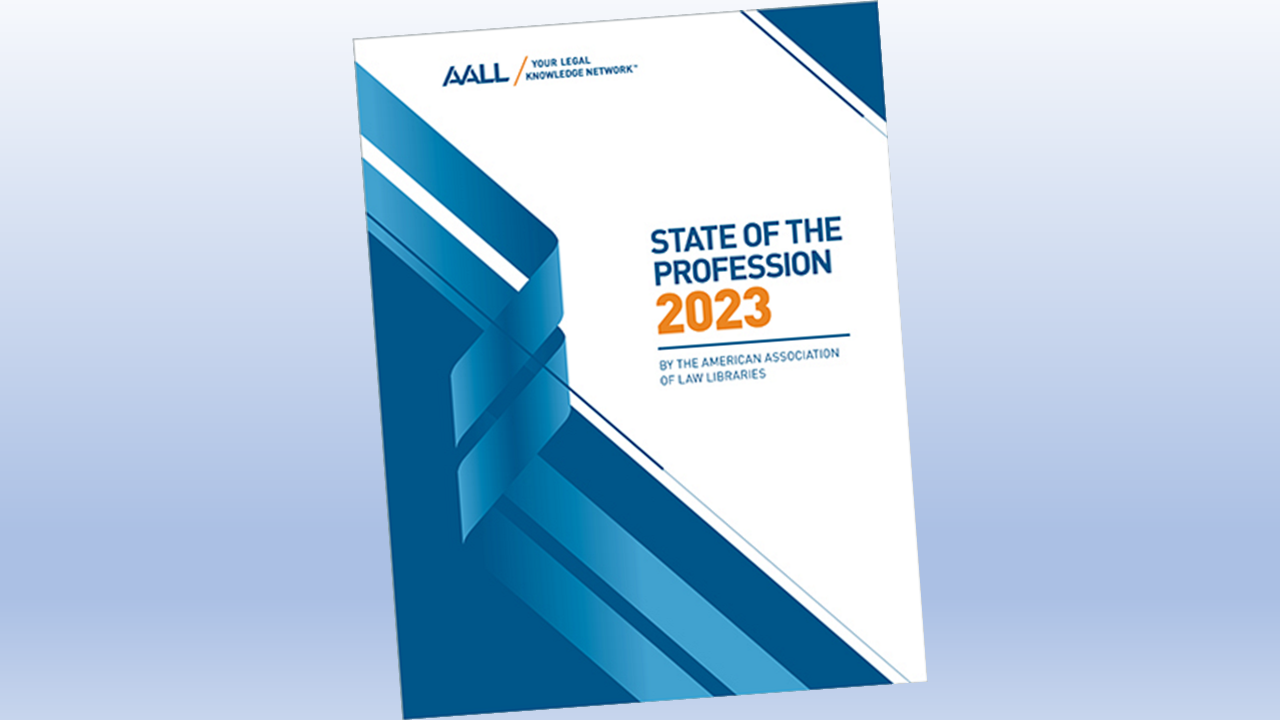Whether they work in law firms or corporate legal, academia or government, law librarians play a central role in testing, recommending and deploying legal technology, according to the American Association of Law Libraries’ 2023 State of the Profession report, an exhaustive 252-page survey of the legal information landscape.
This is the third time AALL has conducted this survey, which is actually three separate surveys of U.S. law librarians based on the type of organization for which they work — one for those in law firms and corporate legal departments, another for those in academic settings, and another for those in government.
The survey is a deep dive into all facets of the profession, including library budgets, working environments, staffing, professional skills, professional development, and more.
While the report’s coverage is wide-ranging, I tend to jump to the findings related to legal technology. Similar to what I wrote about the AALL’s 2021 report and 2019 report, this year’s survey continues to underscore the instrumental role law librarians play in innovation and technology adoption within their organizations.
‘A Crucial Role’
With regard to firm/corporate law librarians, the survey found that they “play a crucial role in bringing new technology and research products to their organizations.” Specifically:
- 89.1% are involved with testing technology and research products.
- 94.5% are involved with recommending technology and research products for purchase.
- 100% are involved with negotiating library, information resource and database contracts.
As might be expected, 100% of firm/corporate librarians are responsible for overseeing research databases. Some 36% oversee their organizations’ knowledge management systems. Forty percent say they oversee other technology.
Among those working in academic law libraries, such as at law schools, their responsibilities encompass overseeing research platforms and databases (70.6%) and the library’s website (54.4%). Nearly half oversee the integrated library system or library management system.
For law librarians working in government, they are responsible for providing leadership and management for their organizations’ technology offerings, the survey finds.
Specifically, 57.9% of government law libraries report that staff recommends technology and research products for purchase and 81.6% say that staff is involved with negotiating library contracts.
Almost all government law libraries — 91.9 percent — manage their organizations’ research databases. In addition, 33.3% oversee knowledge management systems and 8.8% supervise their institutions’ intranet or SharePoint sites.
Most-Used Research Tools
The report also provides data on the research products that are most popular among law librarians, based on numbers of active subscriptions.
For law firm and corporate law libraries, the most popular platform is Wolters Kluwer, used by 92.3% of respondents. Other popular services were:
- Westlaw (or Westlaw Edge), 86.5%.
- Bloomberg Law, 84.6%.
- HeinOnline, 76.9%.
- LexisNexis, (or Lexis Plus), 65.4%.
- Other, 15.4%.
- Fastcase, 11.5%.
- Casetext, 7.7%.
With regard to specialty research tools used by law librarians at law firms and corporate legal departments, the survey found the most popular to be:
- News aggregators, 87.5%.
- Docket Navigator, 56.3%.
- Lex Machina, 47.9%.
- Capital IQ, 43.8%.
- Monitor Suite, 39.6%.
- Pitchbook, 39.6%.
- Other, 20.8%.
- MergerMarket, 18.8%.
- Bureau van Djik (a.k.a. Orbis), 16.7%.
- Factset, 12.5%.
- Trellis, 12.5%.
- Gavelytics, 2.1%.
For law librarians working in government settings, the most popular electronic resources in terms of active subscriptions were:
- Westlaw, 97.3%.
- LexisNexis, 89.2%.
- HeinOnline, 62.2%.
- Wolters Kluwer, 43.2%.
- Fastcase, 27%.
The survey did not ask academic law librarians about their most-used research tools.
Obtain the Report
More information on the AALL State of the Profession report can be found on the AALL’s website. An executive summary is available for download at no cost. The full report can be purchased in print or digital formats, with prices starting at $179 for AALL members and $279 for nonmembers.
Related:
- Why Legal Tech Fans Should Attend AALL in July.
- Report: Law Librarians Play Key Role In Innovation and Legal Tech.
- As AALL Convenes, A Look At The Increasingly Essential Role Of The Law Librarian.
- New Study Highlights the Role of Law Librarians in Legal Tech.
- LawNext Podcast: The AALL’s Femi Cadmus On The Changing Face Of Law Librarians.
- Legal AI Book Wins Law Libraries Award; Here’s My Chapter on AI and the Future.
- Law Librarians: Keeping The Industry Honest.
- AALL: The Other Legal Tech Conference.
 Robert Ambrogi Blog
Robert Ambrogi Blog
